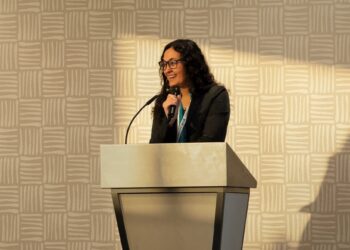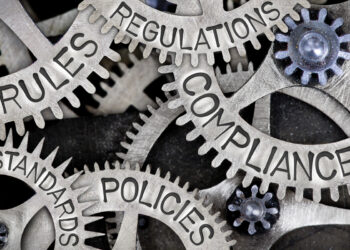
Bob Akers’ recent op-ed in E-Scrap News calls for a thoughtful response to the question of “How valuable are the standards and certifications in our industry today?” Having spent 20 years in the IT and e-recycling business before taking over as executive director of Sustainable Electronics Recycling International (SERI), the housing body for the R2 Standard, I have witnessed the important role standards have played – and continue to play – in the evolution of the electronics reuse, repair and recycling industry.
Certification to a standard, such as R2 or e-Stewards, demonstrates a commitment to operating in a safe and environmentally responsible manner, independent of current market trends and other business pressures. It might be easy to think that we’ve gotten to a point where market forces can drive “doing the right thing,” but when margins decrease – say as what happened to those old CRTs Bob mentioned, or with that 15-year-old flip phone that’s been sitting in someone’s drawer at home – those same market forces have the potential to work against making responsible decisions and taking sustainable actions.
By designating globally accepted best practices and procedures, standards provide certified facilities with the confidence they are at the forefront of sustainability and environmental responsibility in their industry, and they provide customers confidence that their vendors are taking the steps needed to protect their data, their brand reputation, the health and safety of workers, and the environment – all regardless of outside pressures. And just as industries and technologies evolve over time, so too do standards. When R2 and e-Stewards were introduced nearly 20 years ago, they changed the landscape for electronics repair, reuse and recycling, raising performance across the industry. The products being reused and recycled today are far different than they were 20 years ago, as are the processes for repair, reuse and recycling. Thus, standards remain important in establishing best practices and providing confidence to the market.
I firmly believe that the most effective standards and related certifications are ones that are developed using an open, balanced, transparent and consensus-building process. That is how R2 was created and remains structured today. To ensure that R2 remains as such, several years ago SERI took the added step of becoming an ANSI-accredited Standards Development Organization, ensuring that R2 is administered and maintained according to globally accepted checks and balances for voluntary consensus standards.
Multi-stakeholder group leads standard’s evolution
SERI’s R2 Technical Advisory Committee (TAC) is responsible for the development of updates and revisions to the standard. As required by ANSI standards for voluntary consensus standards, the TAC consists of representatives from key stakeholder groups, including entities covered by the standard; customers of these entities; and regulatory agencies, public interest groups, and others involved in implementation of the certification program. This multi-stakeholder group ensures that there are many voices from many different perspectives involved in the process. This isn’t to say that this process is easy or that everyone walks away from the table completely happy. In fact, hundreds of hours of debate and hundreds of public comments go into deciding these requirements. But at the end of the day, the members of the TAC know that they are working together to achieve something greater than any one stakeholder’s self-interests or agendas, and in the end, the final product reflects what the industry itself needs and demands.
Certification is what separates self-made claims by companies from those that have been audited and verified to actually be doing the right things. That’s a big difference, and it is what the world has come to value in R2-certified facilities.
In June 2020, the SERI Board of Directors formally adopted the next evolution of the R2 Standard, R2v3, now approved as an American National Standard by ANSI. Since the revision process began nearly five years ago, members of the TAC have devoted more than 5,100 volunteer hours to addressing more than 900 challenging and complex issues, many of which were submitted by customers, industry members and the public. The representation of many different stakeholder groups on the TAC and the 660 comments received during two public comment periods has resulted in a strong standard well positioned to address the evolving needs of an increasingly diverse industry.
Certification is an important step that provides confidence that facilities are following the standard. Importantly, SERI does not decide the certification of facilities. That’s the role of independent certification bodies and auditors, and this separation of oversight ensures that R2 certification is free from conflicts of interest. Certification is what separates self-made claims by companies from those that have been audited and verified to actually be doing the right things. That’s a big difference, and it is what the world has come to value in R2-certified facilities.
With more than 1,000 facilities in more than 28 countries around the world certified to the R2 Standard, R2 is the most widely adopted standard for the repair, reuse and recycling of used and end-of-life electronics.
The decision to certify your facility to a standard is an investment in your company’s business. And with an increasing number of customers demanding R2 certification as a baseline requirement, your R2 certification should open doors that otherwise remain closed. And as someone who built, implemented and certified my first facility in 2010, I understand the effort and the costs to become certified. I also understand its benefits in terms of reputation, credibility and operational efficiency.
Efforts to support R2-certified companies
SERI will be launching several new initiatives in the coming months to both educate the business community on the value of using R2-certified facilities and to provide our certified facilities tools to showcase the value of their R2 certification to prospective clients. Over the years, SERI leadership has reached beyond the recycling industry to speak at Reverse Logistics, Returns Management, IT Asset Management and other customer-based conferences and events located in North America and around the world. Earlier this year, we created a “For Business” section of our website and upgraded the R2 Directory so customers can more easily find R2-certified facilities close to them or around the world. Also, we have a new application programming interface (API) available for software platforms to integrate with the R2 Directory for real-time results.
As someone who built, implemented and certified my first facility in 2010, I understand the effort and the costs to become certified. I also understand its benefits in terms of reputation, credibility and operational efficiency.
We continue to add to our robust set of resources to help facilities navigate the certification process. The KnowledgeBase on our website is a vast library containing videos, articles, Q&As and other types of guidance for first-time certifications, as well as transition to R2v3. We’ve also launched a podcast series, “Ask the R2 Guru,” and will debut a webinar series in mid-January 2022. And finally, you can always email us or call us for assistance. Our staff is here to be another resource for you. Of the total costs for certification, only $2,000 per year actually goes to SERI. That fee supports SERI’s role in overseeing the program. The KnowledgeBase resources, training videos, article, newsletters, phone calls, webinars, etc. are all funded by your licensing fee.
I am proud of the more than 1,000 R2-certified facilities that have decided that their certification is indeed valuable, and I look forward to welcoming even more facilities in the future. I also encourage anyone with questions to please reach out. SERI is committed to providing solutions that make real business sense, both for facilities and for those looking to manage their used electronics responsibly and sustainably.
Corey Dehmey is executive director of Sustainable Electronics Recycling International (SERI), which owns and administers the R2 certification standard.
The views and opinions expressed are those of the author and do not imply endorsement by Resource Recycling, Inc. If you have a subject you wish to cover in an op-ed, please send a short proposal to [email protected] for consideration.





























